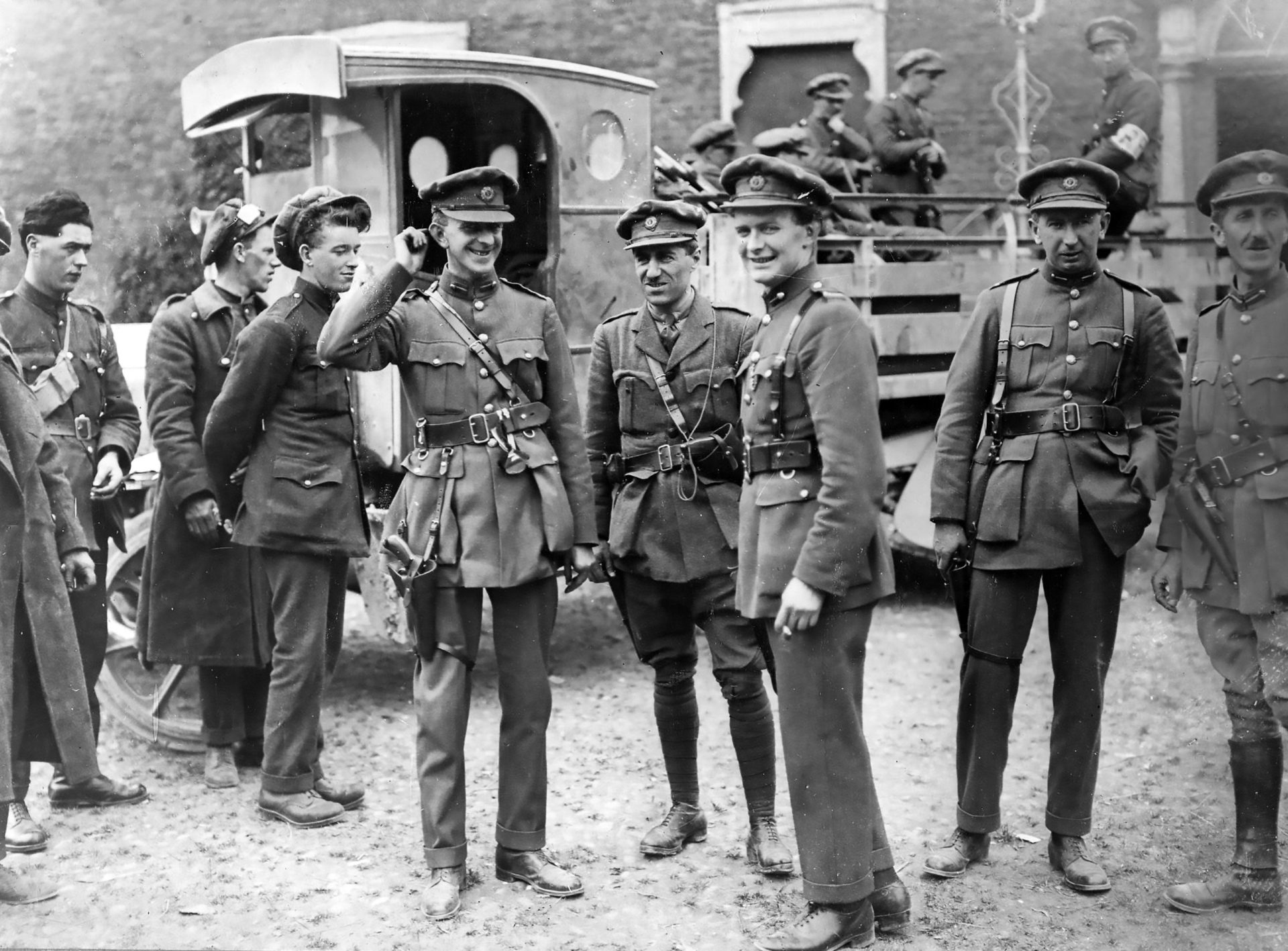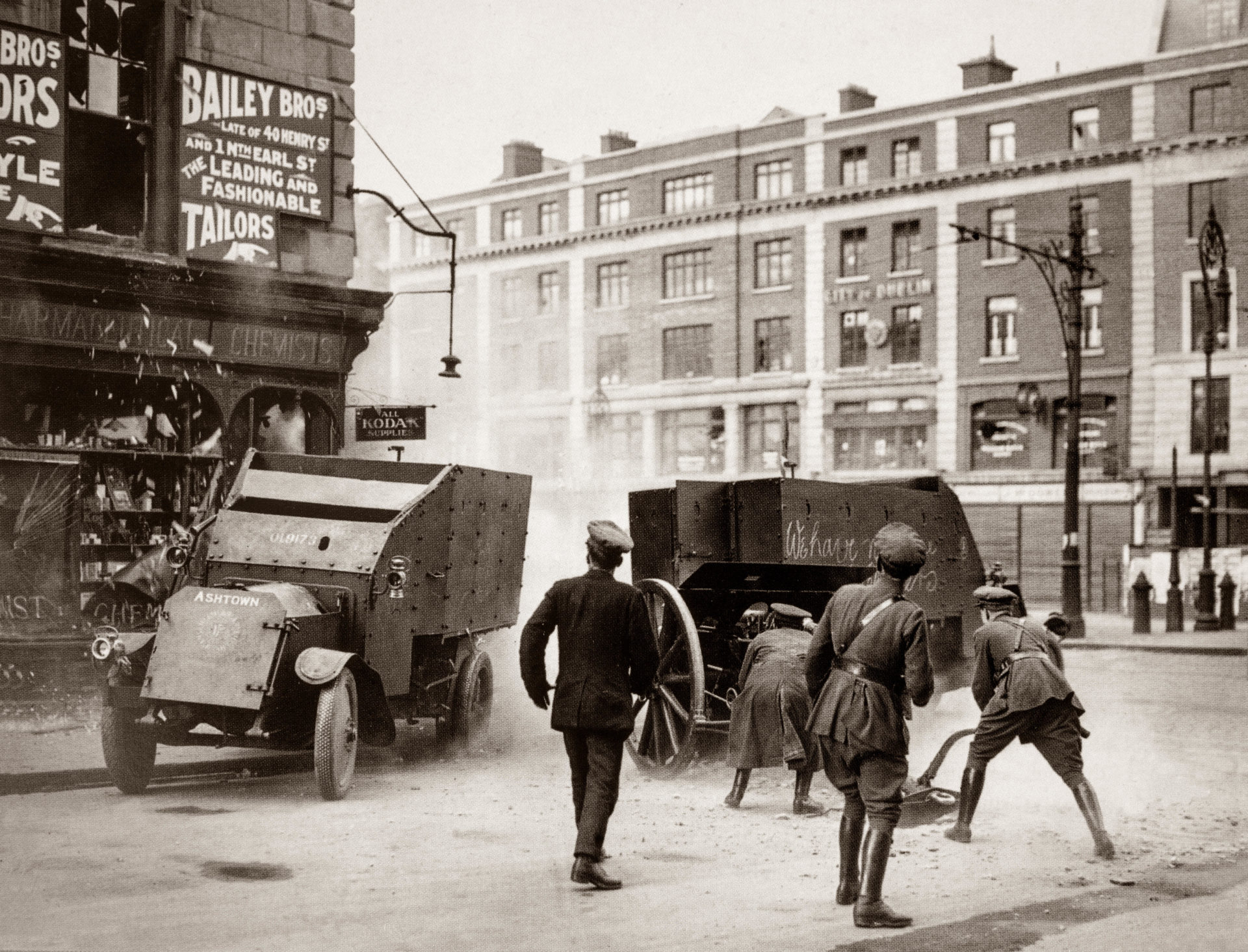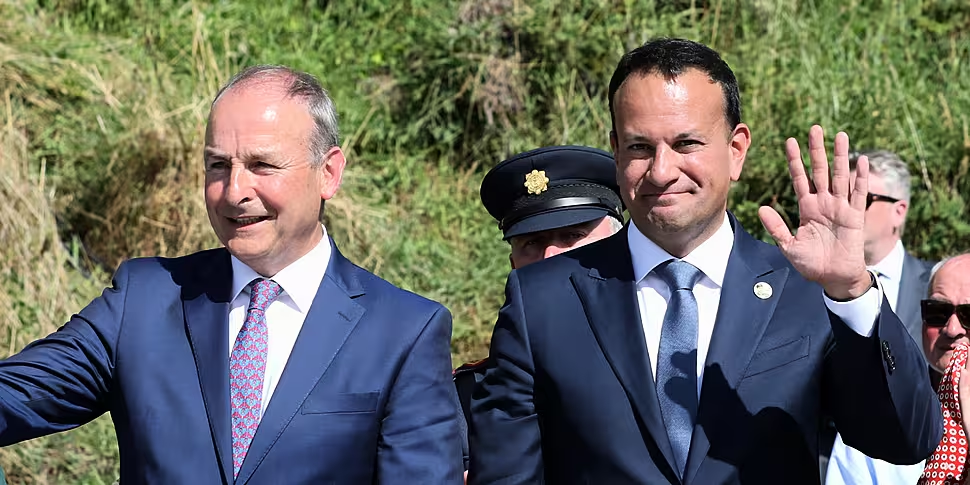The Civil War no longer has “any bearing” on politics in modern Ireland, historian Rónán McGreevy has said as the country marks the centenary of the conflict's end.
The foundation of the State, following the signing of the Anglo-Irish Treaty, triggered a short but bloody Civil War among republicans.
Anti-Treaty forces argued the agreement was unacceptable because it partitioned Ireland and the new Free State remained part of the British Empire.
The new Pro-Treaty Government countered that the agreement was imperfect but, in the words of Michael Collins, gave Ireland ‘the freedom to achieve freedom’.
 Group of National Army soldiers and officers during the Civil War.
Group of National Army soldiers and officers during the Civil War.Mr McGreevy describes the Civil War that followed as the new State’s “baptism of fire” and believes it still has a profound impact on Ireland today.
“I think one of the unmentioned legacies of it is that when the Boundary Commission reported in 1925, it decided not to move large swathes of the North to the South,” he told Newstalk Breakfast.
“The Irish Free State Government at the time accepted it because the State was broke as a result of the Civil War.
“Then of course, you have the legacy of bitterness in relation to the executed dead of the Civil War.”
Political divide
Since the Civil War, every Government has been led by either Fine Gael (previously Cumann na nGaedheal) or Fianna Fáil - the two parties that emerged from the Treaty debate.
While other countries had a right-left divide, Ireland had a Civil War divide and historians differ in their opinion about when it came to an end.
“In my opinion, it stopped in 1932 when Fianna Fáil took power peacefully,” Mr McGreevy said.
“When they took power peacefully in 1932, the Civil War as an obstacle to the development of the State ended then.
“Of course, the bitterness lingered for generations after that - to the extent that the State wouldn’t even commemorate the Civil War in 1972 for the 50th anniversary.”
 Free State troopers shelling rebels during the Irish Civil War.
Free State troopers shelling rebels during the Irish Civil War.A century on, Fianna Fáil and Fine Gael are no longer bitter rivals but partners in Government.
This Sunday, both Taoiseach Leo Varadkar and Tánaiste Micheál Martin will attend an event to mark the end of the war at the Garden of Remembrance in Dublin.
Their joint presence, Mr McGreevy feels, is proof “Civil War politics has no bearing in modern day Ireland”.
The Civil War claimed the lives of nearly a thousand Irish people - including Michael Collins - and officially came to an end when IRA Chief of Staff Frank Aitken told his troops to lay down their arms on May 24th.
Éamon de Valera said “military victory must be allowed to rest for the moment”.
Main image: Micheál Martin and Leo Varadkar.









